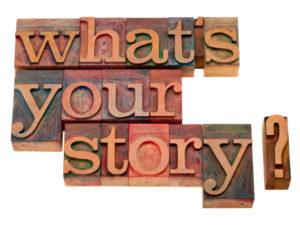 The California drought brings into sharp focus the value and fragility of a vital natural resource. After four years of little rain, the state is so parched and the situation so dire that the governor imposed severe restrictions on water usage, and those who appear to defy those limits find themselves in the headlines.
The California drought brings into sharp focus the value and fragility of a vital natural resource. After four years of little rain, the state is so parched and the situation so dire that the governor imposed severe restrictions on water usage, and those who appear to defy those limits find themselves in the headlines.
Like water, our words are precious resources. They give life to communications, leading to mutual understanding. Words can inspire, inform, and influence, as well as injure. Yet, like water, we take words for granted. We spew out thousands every day, throwing them into churning social rivers where they are often wasted, misconstrued, or ignored.
What if we took a different approach and treated words like a finite and precious commodity? Would our discourse be more civil? Would misunderstandings be minimized? Would communication improve? My guess is, yes. In that spirit, as I noted when this post appeared on Huffington Post, here are four tips for starting a word conservation plan.
- Think before you speak or write. Just as Californians must think twice before doing a load of wash or watering a lawn, so, too, should we think carefully before uttering a single word. Ask yourself why you are writing the email or picking up the phone or typing a text. Be intentional about what you want to communicate. If you aren’t sure what you want to say, wait until you have a better idea. There is nothing wrong with saying you would like to think something over, don’t know the answer, or haven’t yet formed a thoughtful opinion. And when you do communicate, think about how someone on the receiving end might respond. So much of our communications is “me” focused rather than “you” or “we” focused. Be especially careful about email and texts that may sound angry, harsh, or terse. Remember, the recipient can’t see your face or hear your tone of voice
- Use words sparingly. Some of us might have been taught that longer reads smarter, when just the opposite is true. One positive note about Twitter is that it forces us to convey lots of information in a small space. While not always satisfactory, it’s good discipline to get your ideas across in as few words as possible. To boil down to your key point, start by thinking, if you had only seven words, what would those words be? For this piece, it would be, “Treat words like scarce resources. Choose wisely.” As another example, instead of saying, “He has the ability to learn quickly,” say instead, “He can learn quickly.” We just saved three words and made a punchier sentence that gets to the point. Replace this: “The plan for our new strategic direction will be instrumental in saving us money and will help us reduce our rates of turnover,” with this: “Our new strategic plan will save money and reduce turnover.” Thirteen words saved.
- Own Your Words. Many times, we insert words and details to moderate or even obscure intent. Not wanting to put a stake in the ground, we add needless clauses, hesitate to commit with a strong verb, or use the passive voice. We say, “I think our next step might be…,” instead of saying, “Our next step is…,” because we have misgivings or want to soften impact. Too many misunderstandings occur because we think we have been clear, but the other person heard only doubt. A colleague once told me that in her early career, she was ordered to fire an employee—someone she didn’t want to let go—and did it so poorly that the person showed up for his next shift as usual, not fully understanding that the job had gone poof. Fewer words (and more experience) might have saved both parties unnecessary grief.
- Don’t Bury Your Point under Wordy Detail. All too often, the most important information is obscured by needless detail. Years ago, while interpreting for Russian speaking patients, I noted doctors’ frustration when trying to figure out what was really wrong. A patient might take 10 minutes to describe an endlessly delayed trip to the clinic, before talking about trouble breathing and severe leg pain—something which should probably have been treated with some urgency.
Too many problems in our workplaces and personal lives occur because we don’t communicate clearly. Treating words as a valued and finite resource like water will go a long way toward helping us accurately and succinctly convey information, experiences, and thoughts.

